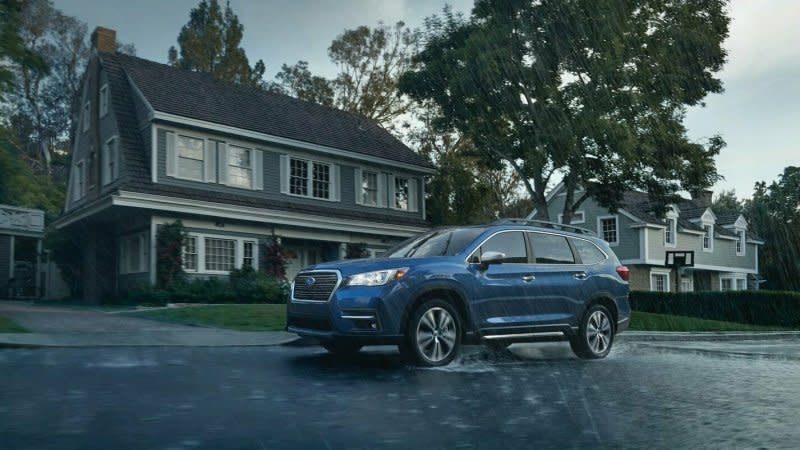Auto industry closes out 2019 with record-high transaction prices, incentive spending

This post has been updated with Ford Motor Co. and Volvo results released Monday.
Year-end sales figures began trickling in early Friday, with initial reports suggesting that the U.S. auto industry's seasonally adjusted, annualized rate will remain above 17 million but fall short of last December's 17.6 million unit pace.
As sales volumes have struggled, automakers have resorted to greater and greater incentive spending in order to move metal. According to Automotive News, some automakers are pushing record discounts to clear inventory. BMW, Daimler and FCA topped December's incentive spending; always-plucky Subaru offered the least. This will continue to offset climbing transaction prices, which are now sitting above $36,000.
Detroit
Despite yet another year of rapid growth at Ram, FCA reported a 2% fall in U.S. auto sales in the fourth quarter, hurt by slowing sales of its aging Jeep and Dodge sport utility lineup. The company's Charger and Challenger continued to fare well despite a sales landscape otherwise hostile to traditional two- and four-door cars.
Speaking of Ram, FCA's pickup finished 2019 on a serious high note, up 18% vs. 2018 with more than 633,000 units sold. This put it firmly ahead of Chevrolet's Silverado (575,600 units combine between light, medium and heavy duty models) but well short of eclipsing General Motors' total full-size volume. With GMC Sierra sales included, GM moved 807,923 large pickups in 2019.
The Silverado family's sales rebounded a touch in 2019, closing the year just shy of 2% below 2018's after months of slowdowns. That's approximately where Ford's F-Series was tracking at the end of the third quarter, when the Blue Oval last reported sales. In the context of these relatively flat performances, Ram's 18% bump is a market-shaker, especially considering GM's incentive spending only trailed FCA's by approximately $200 per unit.
Ford checked in early Monday to report a similar outcome. In the 4th quarter, company sales decreased by 1.3 percent, but the entirety of Ford's decline came from its core brand, which was off 2.2%. Lincoln, on the other hand, had a fantastic quarter, finishing nearly 18% higher than in 2018 on surging (>30%) SUV sales; its car volumes dipped more than 19%. For 2019, Ford's total volume was down 3.0 percent on a 3.5-percent dip from its core brand offset slightly by an 8.3-percent bump from Lincoln.
Tesla
Tesla met its sales goal for 2019 (albeit on the lower end) after carry-forward sales and its efforts to ramp up international distribution hit its numbers early in the year. The Silicon Valley automaker also managed to hit a record-high share price despite calls of doom and gloom early in 2019. The company's 2019 deliveries totaled more than 367,000 — up 50% from 2018.
Imports
Subaru continues to pound away at the middle of the import segment, packing away its 11th consecutive year of growth. The Ascent more than doubled its 2018 sales figures, clearing 81,000 units, and making it the fourth-best seller in Subaru's lineup behind the Outback, Forester and Crosstrek. The Crosstrek continues to outsell the Impreza on which it is based by a 2:1 margin.
Honda managed to stay essentially dead-flat in 2019 (up 0.2%). Most of its strength was thanks to a few core models and the addition of Insight sales, which didn't make much of an impact in its abbreviated 2018 model year.
Hyundai ended 2019 relatively flat, which amounts to a success story for an automaker that had stagnated for years as its sedan-heavy product mix pushed customers to brands with healthier mixes of crossovers and SUVs. The introduction of the Hyundai Kona and Palisade (along with a redesigned Santa Fe) has buoyed the company back into line with the rest of the industry.
Genesis, Hyundai's luxury subsidiary, has also bounced back aggressively after a dismal 2018, when the restructuring of its dealer network cost it almost all of its retail channels. The rebuilt dealer network moved more than 21,000 cars in 2019 — double its 2018 total.
Kia, Hyundai's other affiliate, reported December sales up 8%, capping off the year at a 4.4% increase, with 615,338 vehicles sold. Demand for the Telluride SUV, which has been getting love and more love from us and just about everybody else, is currently outpacing Kia's ability to crank it out.
Toyota, much like the industry in general, finished the year down approximately 2%. Strong performances from the new RAV4 and the aging Land Cruiser did not offset the drops in volume from many of its other core models, including just about every sedan in the Lexus lineup. Corolla sales remained strong — likely thanks in part to conquest sales from domestic automakers, which have abandoned the compact segment.
Volkswagen seems to have found the ceiling on its sales recovery. After falling off a cliff post-Dieselgate, the VW brand's volumes have rebounded to their 2014-2015 levels, finishing at 363,322. That's up 2.6% year over year.
Porsche reported record U.S. sales totaling 61,568, a gain of 7.6% over 2018. Porsche has now seen a decade of growth in the United States. Annual sales of most models were off a bit as buyers likely awaited new models. But the Cayenne nearly doubled its annual sales, and sales of the new 2020 Macan, Porsche's perennial bestseller, have taken off again, rising 24% in December.
BMW's U.S. sales increased 4.4% in 2019, with car sales dropping off by 14.4% but SUVs up 35.5%.
Mini, meanwhile, saw a 17.4% percent decline, with 36,092 units sold.
Like some of the other mid-sized makes, Volvo managed a solid 10% bump over its 2018 performance in the United States, pushing back into six-figure territory with a total of 108,234 units sold.

 Yahoo Sports
Yahoo Sports 

